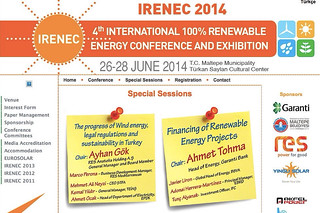Previously undisclosed files leaked to the media by former intelligence contractor Edward Snowden now show that the United States National Security Agency has been authorized to spy on persons in all but four countries.
 |
| NSA Operations Center |
The Washington Post published on Monday official documents provided by Mr. Snowden that shows new proof concerning the extent of the NSA’s vast surveillance apparatus.
One of the documents—a file marked “top secret” from 2010 and approved by the US Foreign Intelligence Surveillance Court—shows that the NSA has been authorized to conduct surveillance on 193 foreign government, as well as various factions and organizations around the world, including the International Monetary Fund, the European Union and the International Atomic Energy Agency.
“Virtually no foreign government is off-limits for the National Security Agency, which has been authorized to intercept information from individuals ‘concerning’ all but four countries on Earth, according to top-secret documents,” journalists Ellen Nakashima and Barton Gellman wrote for the Post.
The reporters write that the NSA’s ability to target the communications of foreign persons and parties is “far more elastic” than previously known, and that documents suggest the agency can acquire conversations that may not involve an intelligence target directly, but concern that individual or entity to a certain degree by relying on provisions contained within the Foreign Intelligence Surveillance Act.
Unless, of course, that person of interest is a citizen of one of the ‘Five Eyes’ nations that, together with the US, are involved in a global surveillance partnership of sorts.
According to the Post, the NSA’s computers automatically filter out phone calls from Britain, Canada, Australia and New Zealand that would otherwise be collected using FISA. Even those nations, however, aren’t entirely sparred.
Nakashima and Gellman go on to acknowledge that the list contains 28 sovereign territories, including the British Virgin Islands, where the NSA reportedly still does permit intelligence gathering [as] filtering out those country codes would otherwise slow the system down.
One former senior defense official who spoke to the journalists on condition of anonymity said that the broad authority is allowed so that the US government is able to assess any developing situations around the world at the drop of a hat.
“It’s not impossible to imagine a humanitarian crisis in a country that’s friendly to the United States, where the military might be expected on a moment’s notice to go in and evacuate all Americans,” the official said. “If that certification did not list the country,” the source suggested, then the NSA could not gather intelligence under the FISA Amendments Act, which allows for the interception of such communications.
“These documents show both the potential scope of the government’s surveillance activities and the exceedingly modest role the court plays in overseeing them,” Jameel Jaffer, deputy legal director for the American Civil Liberties Union, told the Post. More
The 28 sovereign territories undoubtly includes the Cayman Islands and all the other British Overseas Territories (OT's). I am sure that arrangement was made with the understanding that London would get the entire feed from the OT's. The NSA has vastly superior equipment to GCHQ. Editor











